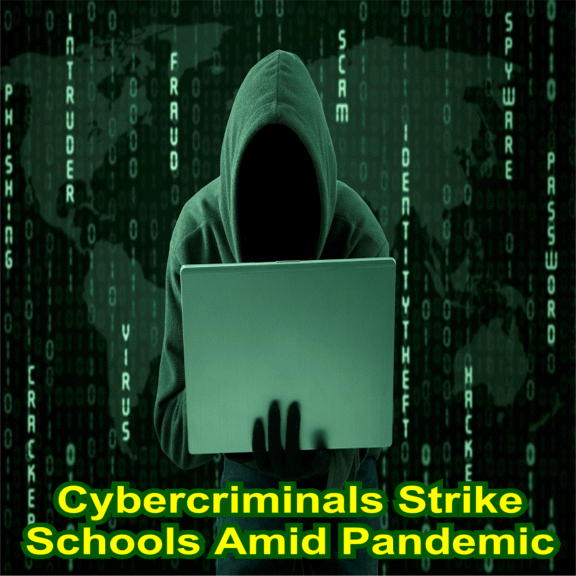SSPI Launches "Education to End Hate" Initiative - (CA Dept of Education)
State Superintendent Tony Thurmond Launches New "Education to End Hate" Initiative to Combat Bias, Bigotry, and Racism
SACRAMENTO—State Superintendent of Public Instruction Tony Thurmond on Monday announced a new, multifaceted “Education to End Hate” initiative designed to empower educators and students to confront the hate, bigotry, and racism rising in communities across the state and nation. Under a new effort outlined during a virtual press conference, the State Superintendent said that the California Department of Education (CDE) will lead a series of strategies—including educator training grants, partnerships with community leaders, and virtual classroom sessions—that leverage the power of education to create a more just society.
“We do not need any more evidence that our country is facing two pandemics: coronavirus and hate. It feels like every day we are seeing heartbreaking examples: more anti-Semitic behavior, bullying of Asian American students because of our President’s rhetoric, Islamophobia, discrimination of our LGBTQ neighbors, and violence directed at people of color,” Thurmond said. “It’s time to double down on our efforts to combat all forms of hate, bias, and bigotry. By digging deeper into the complexities of our diverse and difficult histories—not denying or ignoring them—I believe education can provide the pathway to healing, understanding, and racial and social justice.”
The State Superintendent’s “Education to End Hate” initiative has three components:
Educator training grants: The CDE will award up to $200,000 in mini-grants to local educational agencies (LEAs) to support educator training in the areas of anti-racism and bias. The grants will be funded by contributions from an ongoing philanthropic partner, the S. D. Bechtel, Jr. Foundation. Organizations with extensive experience in leading related educator trainings—including Equality California the National Equity Project
the National Equity Project , and the Simon Weisenthal Center’s
, and the Simon Weisenthal Center’s Museum of Tolerance—have already agreed to partner and offer professional development and resources through this program. More details on grant guidelines and the application process will be released to school districts soon.
Museum of Tolerance—have already agreed to partner and offer professional development and resources through this program. More details on grant guidelines and the application process will be released to school districts soon. “The Simon Wiesenthal Center is the preeminent organization fighting anti-Semitism, bigotry, and hate globally. Its Museum of Tolerance (MOT) is a proud and trusted partner to schools throughout California in advancing anti-bias education, inclusion, and equity through unique professional development programs and educator resources,” said Rabbi Meyer H. Hay, Executive Director of the Simon Wiesenthal Center and Museum of Tolerance. “Committed to confronting hate and promoting human dignity and respect for all, the MOT has also adapted its experiential content for virtual programs for educators, students and parents.”
Virtual Classroom Series: Throughout the month of October, the CDE will host a series of virtual classroom sessions broadcast live throughout the state that will be designed to engage students, educators, and families in a wide-ranging dialogue about the many forms of bias young people across California face—and ways schools can lead efforts to end discrimination.
Roundtable with leaders: In the coming days, the State Superintendent will convene a public roundtable discussion among leaders from prominent racial and social justice organizations, educators, and state lawmakers to brainstorm additional ideas for ways schools can influence the change necessary to ensure a physically and emotionally safe learning environment that is inclusive for all students.
Several lawmakers, who have each worked on multiple fronts to advance equity, on Monday expressed their commitment to supporting this initiative, including:
- Senator Connie M. Leyva (D-Chino), Chair of the Senate Education Committee
- Senator Scott Wiener (D-San Francisco), Chair of the California Legislative LGBTQ Caucus
- Assemblymember David Chiu (D-San Francisco), Chair of the California Asian Pacific Islander Legislative Caucus
- Assemblymember Lorena Gonzalez (D-San Diego), Chair of the California Latino Legislative Caucus
- Assemblymember Monique Limón (D-Santa Barbara), Vice Chair of the California Legislative Women’s Caucus
“Sometimes in our darkest hour is when we do our best work. We know that racism and hate are taught, and we know that children are born loving everyone. You learn what you live, and unfortunately racism and hate are still being taught in living rooms across the state of California and across this country,” Senator Leyva said. “If we learn about each other, the hope is that we won’t hate each other. The hope is that we will know that we have more in common than not. I want to thank State Superintendent Thurmond for always taking on these big issues.”
“In a time when President Trump is attempting to convince Americans that discussing issues like race, gender, and sexual orientation are counterproductive to American ideals, California must take a stand,” Senator Wiener said. “Education is critical in combating hate and bias against LGBTQ people. I am proud to see that California is once again leading the fight against hate.”
"The pandemic brought with it a rise in hate against Asian Americans. We have seen this happen in other moments of national crisis and that's why I have worked on policies to address bullying and discrimination faced by our students," Assemblymember Chiu said. "The additional resources and strategies that Superintendent Thurmond has announced today will help ensure that our schools continue to be a safe place to learn."
“We know our children face racism and bigotry in their lives. Classrooms should serve as safe learning environments that allow students to process and understand these difficult experiences,” Assemblymember Gonzalez said. “Superintendent Thurmond’s initiative will help ensure students, parents, and teachers are prepared with the tools they need to confront racism, bigotry, and hate-based violence and to facilitate honest conversations about the realities students are facing every day.”
“Hate, bigotry, and racism should never be a part of our schools. As children continue their education during a challenging time, we must ensure their well-being is protected,” Assemblymember Limón said. “I applaud the efforts of the CDE and State Superintendent Thurmond to continue prioritizing and taking action on this issue.”
# # # #
Tony Thurmond — State Superintendent of Public Instruction
Communications Division, Room 5602, 916-319-0818, Fax 916-319-0100 SSPI Launches "Education to End Hate" Initiative - (CA Dept of Education)




































